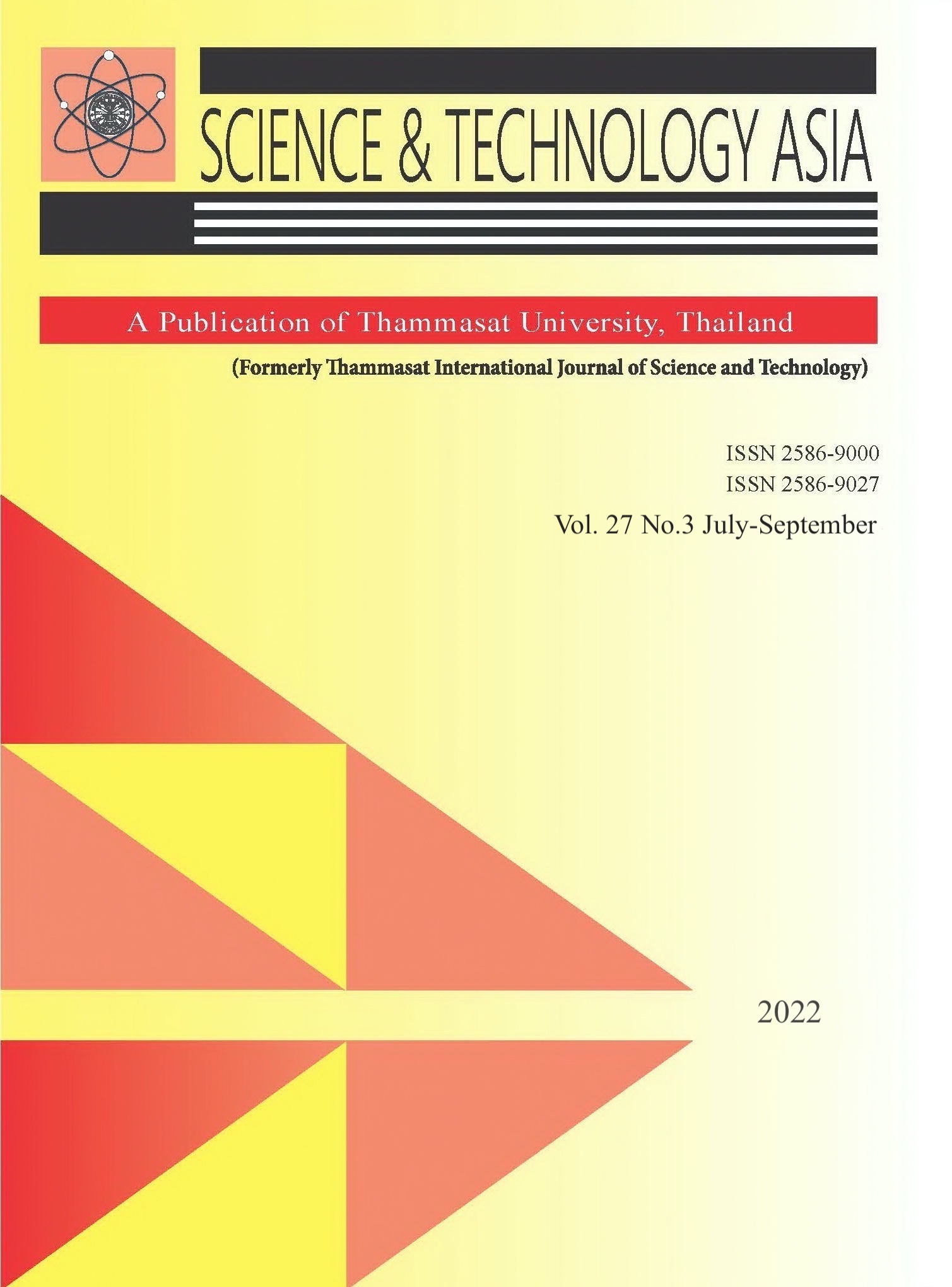Development of a Serological Dilution Microfluidic Chip for Immunoassay Applications
Main Article Content
Abstract
This work aims to develop a multiple dilution microfluidic chip that is capable of diluting the human serum by means of two-fold dilution for seven levels from 1:2 to 1:128 with phosphate-buffered saline (PBS) buffer. The dilution in this work is processed in parallel in order to reduce the accumulated errors that the standard pipetting technique generates in the micro-well plate. The serum and PBS buffer are precisely delivered to the micromixers by controlling their flow rates. The dilution is achieved by the passive mixing process for which the serpentine geometry is designed in order to continually generate the Dean vortices along the serpentine microchannel to effectively mix serum and PBS buffer in the microfluidic chip. The prototype of this multiple dilution microfluidic chip is fabricated by using polydimethylsiloxane (PDMS). The dilution-in-parallel capability of this prototype is validated by using the UV-vis absorption method. The results reveal that the measured values of the seven dilution ratios obtained are in good agreement with the exact values. Finally, this prototype is evaluated for serological MOG-IgG detection in order to verify the reliable operation of this multiple dilution microfluidic chip. The prototype can successfully detect MOG-IgG at all volume concentration ratios.
Article Details

This work is licensed under a Creative Commons Attribution-NonCommercial-NoDerivatives 4.0 International License.


